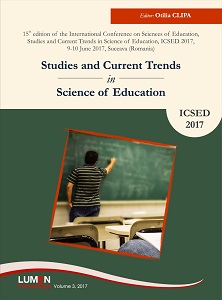The Role of Learning Style in the Relationship Between Cognitive Ability and Academic Performance in Primary Schooling
The Role of Learning Style in the Relationship Between Cognitive Ability and Academic Performance in Primary Schooling
Author(s): Maria Magdalena Stan
Subject(s): Social Sciences
Published by: Editura Lumen, Asociatia Lumen
Keywords: Learning style; learning strategies; cognitive ability; academic performance; school success.
Summary/Abstract: School readiness is understood as a process of directed development of knowledge and skills that will allow a quick and easy adjustment of children to the new requirements of Grade 1. Traditionally, preparedness for school is associated with academic performance and acquisition. Most practitioners consider cognitive ability as a core element of academic success. This is described as a set of mental abilities and aptitudes that associates unidirectionally with academic acquisitions. The use of a differentiated psycho-diagnosis methodology during schooling allows us to evaluate the general level of the child’s psycho-social development and the possibility to make some predictions about his academic performances as well as to carry out specific psycho-educational interventions. The primary aim of this research was to examine the role of learning styles and learning strategies in the relationship between cognitive ability and academic performance in primary schooling. We consider that through this approach on the factors which influence academic performance-learning style and cognitive abilities, the present study may constitute a reference point for practitioners in education to help them design adequate instructional strategies which would meet pupils needs and choices in acquiring specific competences.
Book: Studies and Current Trends in Science of Education
- Page Range: 370-378
- Page Count: 9
- Publication Year: 2018
- Language: English
- Content File-PDF

